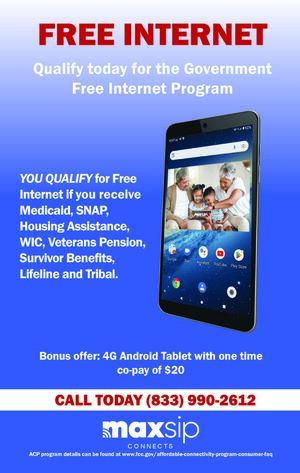Gig Workers Retain Independent Contractor Status
March 23, 2023
An appeals court ruled Monday in favor of companies that want to classify some workers as independent contractors, saying that Proposition 22 is mostly constitutional.
Justices in a California court of appeals ruled today that Proposition 22 — a 2020 ballot measure that allowed Uber, Lyft, and other platforms to classify their workers as independent contractors rather than employees – is largely constitutional, but that part of the measure is invalid.
The distinction between employees and contractors is important: Employees have the right to a host of benefits and protections like minimum wage, sick leave and family leave, unemployment and disability benefits, and more. But independent contractors don’t have the same rights.
The appeals court disagreed with a lower court that had ruled Prop. 22 was unconstitutional on the whole.
But the Monday ruling struck down part of Prop. 22 that they felt intruded on the legislature and judiciary’s power. The court ruled that a section of the measure that defined legislation on certain topics — like unions for gig workers — as amendments to the Proposition was invalid.
“Today the Appeals Court chose to stand with powerful corporations over working people, allowing companies to buy their way out of our state’s labor laws and undermine our state constitution,” wrote Lorena Gonzalez Fletcher, executive secretary-treasurer of the California Labor Federation, an umbrella organization for labor unions, which opposed Prop. 22, in a statement. “Our system is broken. It would be an understatement to say we are disappointed by this decision.”
“Voters knew what they were voting on,” said Jennifer Barrera, president of the California Chamber of Commerce, a powerful business group which supported Prop. 22. “They wanted to maintain the flexibility for these gig workers and provide them the opportunity to do this work. And I think that’s ultimately, what the judge did is to uphold that flexibility.”
In a statement from Protect App-Based Drivers and Services Coalition, which includes Uber, Lyft, DoorDash and Instacart, the companies celebrated the ruling as “a victory for the nearly 1.4 million drivers” in California.
But while this chapter has drawn to a close, the story probably isn’t over. A union challenging the constitutionality of Prop. 22, Service Employees International, may appeal the ruling. When asked about a possible appeal, Tia Orr, the executive director of SEIU California, said in a statement “Drivers have always led this movement, and we will follow their lead as we consider all options — including seeking review from the (California) Supreme Court — to ensure that gig drivers and delivery workers have access to the same rights and protections afforded to other workers in California.
In an interview this month, UC Berkeley Law professor Catherine Fisk said she’d be “stunned” if whichever side lost didn’t appeal the decision.
“There’s just too much money at stake — for both sides,” she said.
The judicial system moves slowly, so it could be months before we learn whether the California Supreme Court decides to hear an appeal.
The case has ramifications beyond this initiative, said Kurt Oneto, an attorney with Nielsen Merksamer, the firm representing the Protect App-Based Drivers and Services Coalition, which includes Uber, Lyft, DoorDash and Instacart and is defending the ballot measure in court.
The arguments that a union and several drivers are making to challenge the initiative “would drastically undercut and restrain the initiative power of California voters,” he told CalMatters in late January.
On the other side, ultimately at stake for drivers are the kinds of pay, benefits, and legal protections they’re entitled to, said Stacey Leyton, an attorney with Altshuler Berzon, the law firm representing SEIU and the drivers in challenging the ballot measure.
But the effects will extend beyond drivers, she said. If Uber and Lyft have to pay drivers higher wages, other industries — like fast food and janitorial services — that are potentially trying to hire the same workers will have to compete with those wages, she said in a January interview.
“When companies exploit their workers and misclassify their workers, it has the effect of harming all workers,” said Leyton.
Stay informed with our free newsletter that helps you hold your leaders accountable
Enter your email address
California’s battle over the classification of workers began in 2018, when the state Supreme Court issued a ruling that established a new standard for who can be counted as an independent contractor. After that decision came a new state law rendering workers in many sectors — including truckers, commercial janitors, nail salon workers, physical therapists, and gig economy workers — as employees.
After pushing unsuccessfully to get the ride-share industry exempted from the new law, Uber and Lyft upped the ante, threatening to write a ballot measure to do so unless they could negotiate another deal. They argued that changing drivers’ status would reduce workers’ flexibility and “pose a risk to our businesses.”
In 2020, the companies forged ahead with the ballot measure, Prop. 22, which became a pitched battle between labor and business, breaking campaign finance records in the process. The measure allowed gig companies to classify their workers as independent contractors. It also provided gig workers with certain benefits, in lieu of standard employee benefits, including 120% of minimum wage for “active” driving time (but not time waiting), a partial health care subsidy for drivers who clocked enough hours per week, and covering costs for on-the-job injuries. The measure passed with 58% of the vote in November 2020.
It is one of several ballot measures in recent years backed by business interests and aimed at overturning new state laws. On the same 2020 ballot as Prop. 22 was Prop. 25, backed by the bail bond industry, to overturn a new law ending cash bail. Voters agreed to ditch the law.
In the 2022 election, the tobacco industry paid for an initiative asking voters to reconsider a state law banning flavored tobacco, but they upheld the ban. More examples are likely headed for the 2024 ballot, including an industry-backed referendum to overturn a new law that creates a council to regulate wages and working conditions in the fast food industry and a referendum — backed by oil and gas groups — to overturn a state law that prohibits new wells within 3,200 feet of homes, schools, hospitals and other “sensitive” locations.
Shortly after Prop. 22 passed, several drivers and SEIU mounted a legal challenge, arguing that it violated California’s constitution. Their case was eventually heard by a judge in Alameda County Superior Court, who ruled that Prop. 22 was unconstitutional. Attorneys representing the state and the Protect App-Based Drivers Coalition appealed that decision, which is how it wound up in the appeals court that issued Monday’s decision.
What has changed — for better or worse — since the measure took effect depends somewhat on who you ask.
Jose Pineda, a driver for DoorDash in Northridge referred to CalMatters by the industry coalition, says his pay has increased from about $23 to $25 per hour (before costs) to $27 to $30 an hour. After switching from Medi-Cal to an insurance plan through Covered California, he receives a health stipend of about $75 every two weeks, he said. He supported Prop. 22, and said, “I think it’s good. We need it. I mean, what else is out there?”
Instacart worker Saori Okawa loads groceries into her car for home delivery in San Leandro on July 1, 2020. Photo by Ben Margot, AP Photo
Contrast that with the experience of Daryush Khodadadi-Mobarakeh, who drives 35 to 40 hours a week for several apps, including Uber, Lyft and DoorDash, and was connected to CalMatters by SEIU. Khodadadi-Mobarakeh, who is a leader with the California Gig Workers Union, said his pay has consistently decreased since he began working in 2014, including after Prop. 22 went into effect.
Now it takes him about 12 hours to make the same amount he used to earn in eight hours before Prop. 22, he said. And he doesn’t receive the health stipend; he didn’t bother trying to sign up, he said, because he gets insurance through his wife and his understanding is that you need to be on your own insurance to get the reimbursement.
“They’ve got so many restrictions on that that the majority of the people, they don’t qualify,” he said.
In a May 2021 poll conducted by Instacart, 12% of its California “shoppers” (workers who select and deliver orders) said they completed enough hours per week to be eligible for the health stipends. Of that 12%, one quarter requested and received a subsidy. Another survey, paid for by Uber, found that 14% of drivers had signed up to receive health care contributions. Nearly 90% of drivers “already get health insurance from another source,” the survey found.
Research on drivers’ wages after Prop. 22 varies, depending in part on how working hours and expenses are calculated. A study paid for by the coalition including Uber and Lyft and conducted by researchers at UC Riverside found that in late 2021, drivers for DoorDash, Instacart, Lyft, and Uber earned $34.46 in gross pay per hour of “engaged” time — the time between accepting a ride or delivery and dropping the order or rider. That was up from $27.34 in late 2019, before the measure passed. Those wages don’t account for time workers spend waiting between rides, or costs like fuel and car maintenance and insurance.
But a study of Uber and Lyft drivers conducted by National Equity Atlas, in partnership with Rideshare Drivers United, which opposed Prop 22., found that drivers on average earned $26.30 in gross wages per hour in late 2021. After subtracting the cost of employee benefits not provided to gig workers — including reimbursement for total miles driven and employer contributions to programs including Social Security, Medicare, unemployment insurance and paid sick time — that study computed the net wages at $6.20 per hour.


















Reader Comments(0)